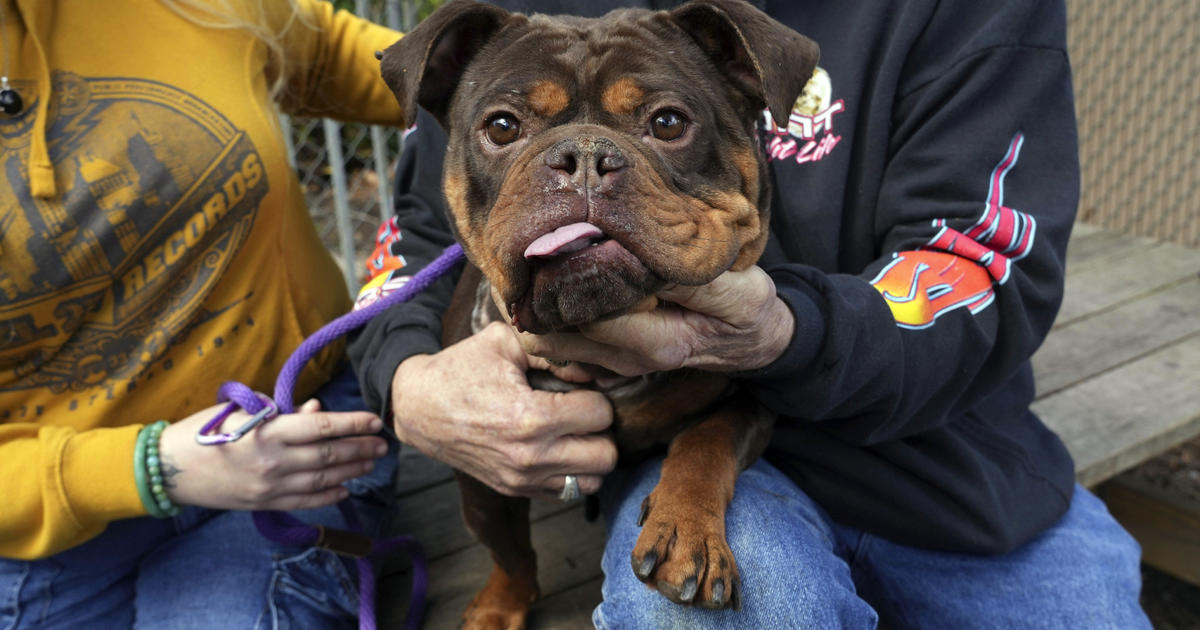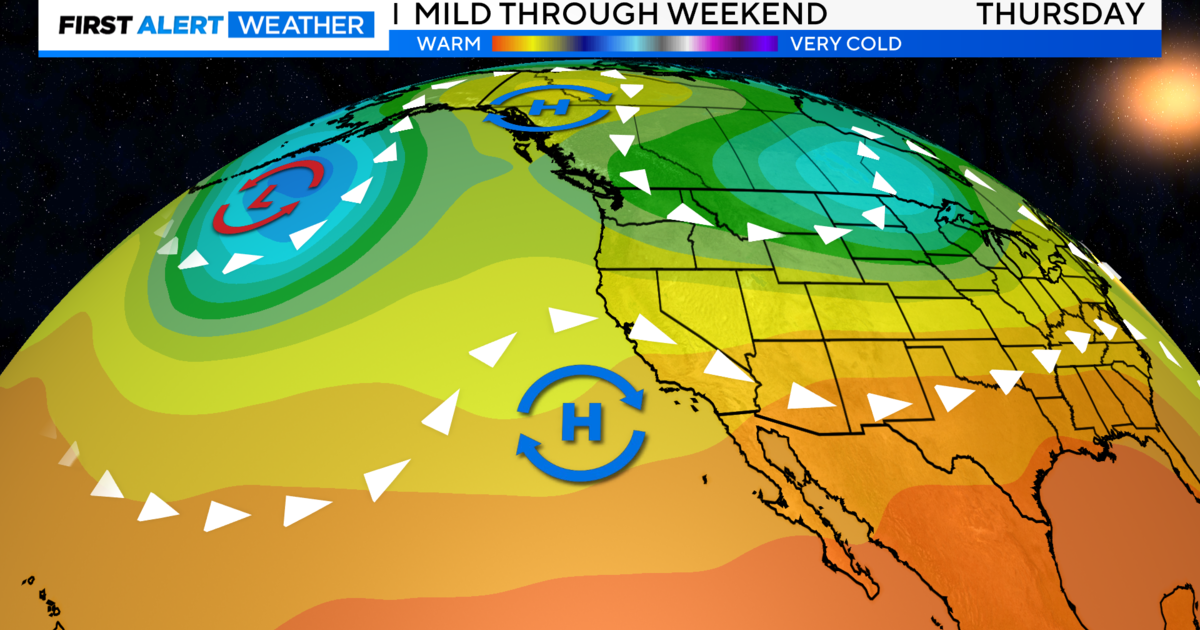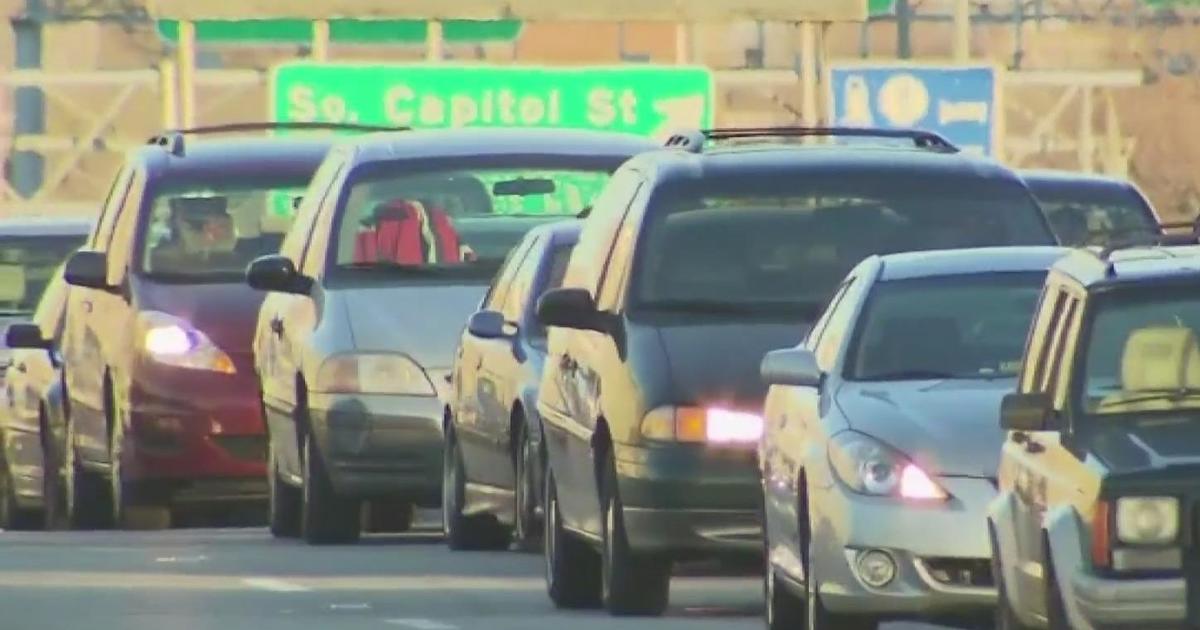Millions Of California Voters Turn Out On Election Day
SACRAMENTO (AP) — After months of hard campaigning by candidates and weeks of negative ads funded by record political spending, millions of California voters are finally having their say.
The outcome of the election Tuesday will decide if residents will pay higher taxes to fix the state's persistently out-of-balance budget; change direction on the death penalty; and pass a first-in-the-nation requirement to label genetically modified foods.
No state politician has more at stake than Democratic Gov. Jerry Brown, who was elected after promising to end the state's long-running budget crisis and has personally championed a $6 billion-a-year tax increase that he says he will restore California's luster, especially for its schoolchildren.
Brown was greeted by more than two dozen supporters as he cast his ballot near his home in the Oakland hills Tuesday morning. He said he was optimistic the proposition would pass.
"I think that's a proposition that speaks for itself and I wouldn't be surprised if the outcome is more positive than most of you are probably expecting," Brown said.
California reached an all-time high of 18.2 million registered voters last week. The percentage of registered Republicans continued to decline, dropping below 30 percent.
A Field Poll predicted that 70 percent of California's registered voters would cast ballots in Tuesday's election, with more than half voting by mail. It would be the first time the number of mail-in ballots overtook the number of precinct ballots in a California general election.
Several thousand Californians had called the state's voting hotline by Tuesday afternoon, mostly to ask about the location of their polling place, according to Shannan Velayas, spokeswoman for the secretary of state's office.
Callers also reported that a handful of the state's 24,500 polling places did not open at 7 a.m., likely because a volunteer overslept, Velayas said.
In Sacramento, some residents did not want to cross a picket line to vote at their designated polling place located inside a Raley's grocery store. Workers at that grocery chain went on strike Sunday.
Elections workers deployed extra staff to that location to provide curbside voting and give directions to other polling places, Alice Jarboe, assistant Sacramento County registrar, said.
In South Los Angeles, a polling place at an elementary school had paper ballots but no voting machines for about two hours.
Poll workers "just inadvertently left them at home," county registrar spokeswoman Elizabeth Knox said.
Some voters waited for the machines to arrive at Trinity Street School while others filled out the paper ballots.
A number of voters around the state reported arriving to polling places and finding their names not on the rolls, including some who had registered through the Department of Motor Vehicles, said Kim Alexander, president of the nonpartisan California Voter Foundation.
In Shasta County, voters registered as permanent absentee were calling in to complain that they had not received their mail-in ballots.
Asked why that might be, Shasta County Registrar of Voters Cathy Darling Allen said, "There's as many different reasons as there are voters."
Voters were considering 11 statewide ballot propositions, topped by Brown's tax plan, Proposition 30, and the rival Proposition 38, which would raise income taxes across the board and send the extra revenue directly to schools.
Kevin Wehr, a sociology professor at California State University, Sacramento, rode his bicycle to an elementary school to cast a "yes" vote for Proposition 30, which he hopes will stave off further cuts to his campus.
"It's really important this year because so much hinges on it in terms of education and public safety," said Wehr, 40. "It feels like we've finally gotten to the breaking point and people see that we can't cut our way out of budget deficits."
In San Diego, registered Republican Elizabeth Marckwardt said she was not afraid of the consequences if Proposition 30 failed.
"We're taxed enough," said the 57-year-old, who volunteered for years at her children's San Diego schools. "We need to decrease spending, not increase taxes."
Organized labor has spent $75 million so far to block business-backed Proposition 32, which would starve unions of the tens of millions of dollars they use to finance campaigns and political organizing.
Proposition 37 could become the first state law requiring manufacturers to label cereals, sodas and other products containing genetically modified ingredients.
In a working class neighborhood in Fresno, Republican Kevin Trevarrow, 32, said he was voting for the measure.
"I want to know what I'm eating and what my daughter is eating," he said.
Proposition 34 would abolish the death penalty in California, including for the 725 inmates on death row, and make life in prison without parole the toughest sentence.
At an Orange County polling place, Chris Lear, an attorney from Orange County and an Army veteran who served in Iraq, said he voted no on the initiative.
"I think it's a deterrent," he said. "And even if it isn't a deterrent, it keeps them from breathing the same air we do."
At a polling place in the Hollywood Hills, a married couple, Melinda Scott, a writer, and Chris Saranchock, an actor, voted together. She said they voted for Prop. 34 because the death penalty isn't equally applied.
"I don't trust the system. If you're poor and minorities you are targeted," she said.
Meanwhile in Richmond, several vans sporting huge "No on N" signs canvassed across town as voters decide whether to make the San Francisco Bay Area city the first in the nation to impose a tax on soda and other sugary beverages to combat childhood obesity.
"I think the consequences of fructose and corn syrup in these drinks are insidious," said supporter Bill Pinkham, 69 who was campaigning less than two blocks away from City Hall. "The breakfast of a lot of kids around here consists of a Big Gulp. It's a very serious situation."
Pinkham admitted that the measure faces an uphill battle, especially with the likes of the American Beverage Association spending hundreds of thousands of dollars against a tax increase for sugary drinks.
In an age of unbridled political spending, the campaigns for and against the 11 statewide initiatives raised $350 million as of last month.
Changes in the state voting landscape — including independently drawn political boundaries — produced a bumper crop of competitive legislative and congressional races that will test Republican strength in a state growing increasingly Democratic.
The amount of money spent so far in House races by super PACs and other groups — at least $54 million — highlights the stakes for both major parties.
(Copyright 2012 The Associated Press.)



